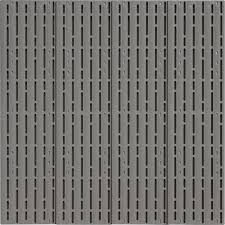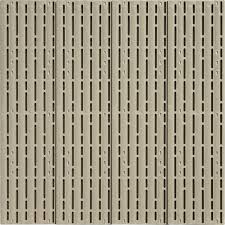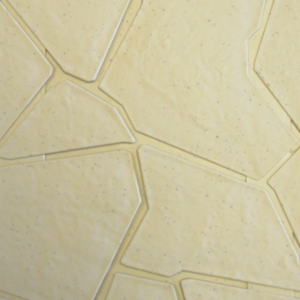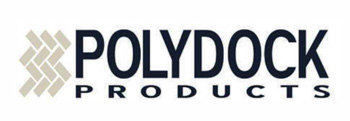Plastic & Composite Decking – (Revised) (Part 3) – Pier & Waterfront Solutions
Plastic decking – A GUIDE TO COMPOSITE & PLASTIC DECKING – (Part 3)
Written by ShoreMaster Marketing Updated by Pier & Waterfront Solutions LLC
ShoreMaster offers so many decking choices that it is hard to grasp which option best fits your individual needs.
In this third of three series, we discuss the types of composite and Glacier Flow-Through plastic decking available from ShoreMaster.
Part 1 of this series covered two types of wood decking available. Part 2 covered the latest in aluminum decking and its many options.
How to choose The Right Decking?
Some dock manufacturers are very limited in their decking options. This is a blessing to a dock dealer who wants to limit their on-hand inventory. At the same time, limited decking choices affect your ability to get the best choice for your needs.
With ShoreMaster decking you are not limited to one or two choices. or the few choices the dealer chooses to offer you.
Pier Waterfront Solutions LLC has the widest range of decking choices anywhere. This is a major plus for you as a dock owner.
Decking represents 25% – 50% of the total cost of a dock system
Obviously, the initial cost is an important aspect when choosing decking. No element on any dock system is as important to the user than the decking. Yet, the initial cost is not the only factor you should consider when choosing a long-term dock.
You might be surprised to learn that other factors are important also:
- How you will use your dock;
- How much maintenance are you willing to do yourself versus hiring it out; and
- How long you expect your deck to last.
These answers contribute to the total cost of the decking over the life of the product.
Choosing a Composite or Plastic Decking For Your Dock
Plastic materials are a great decking option for docks. This type of decking may be chosen as a lower maintenance alternative to wood decking despite its initial cost.
One advantage that composite decking has over wood is that there is no need to sand, stain, or refinish it. However, Composite decking is not maintenance free. Many composite decking contains wood fibers.
Mold and mildew may grow in damp or shady areas of the decking which will then begin to show signs of decay if not cleaned regularly. This is due to moisture wicking into the boards along the wood fibers.
Composite decking is NOT the same as plastic decking
It is important to note that people may lump plastic decking into the composite decking category. True plastic decking is composed of 100% recycled and/or virgin plastic.
Plastic decking eliminates the potential for decay caused by mold or mildew, but can sometimes be prone to expansion in the frames. Manufacturers have adjusted the deck size or mounting requirements to handle this problem.
ShoreMaster does not have Composite Decking which is usually used on home decks for obvious reasons.
The Difference between Composite Decking and Plastic Decking
Plastic decking contains NO organic materials. This type of decking is made out of polypropylene, polyethylene, polyvinyl chloride, or some combination of the three.
Plastic deck boards can be injection molded, rotationally molded or extruded. The panels are lighter than composite boards, and they usually have a shinier appearance. They contain openings of up to 42% of the deck surface to allow water to pass through or run off to avoid “pooling”.
Plastic decking will weather better and require less maintenance than natural woods.
Special attention is required for composite decking manufactured with organic materials as they are more susceptible to decay than true plastic decking. Internal expansion from “wicking” of organic fibers in composite decking results in deck expansion also.
How much maintenance is required?
Composite decking should be washed annually to remove mold or mildew. Do NOT use a power washer to avoid damaging the boards. Hand scrub only. Be sure to use a biodegradable cleaner to prevent damage to the environment.
OTHER CONSIDERATIONS
With composite decking, it’s important to remember that the decking absorbs the sun’s rays and may become warm to the touch on hot days. At times it may actually get uncomfortable to walk on it. The darker the color the hotter it gets. On the flip side, composite decking will generally feel warm on cooler days if the sun is out.
Composite decking can also be a problem on large bodies of water much like a wood deck. When waves beat against the bottom of the decking the dock is more likely to flip over if the decking is bolted to the frames. It needs a way to relieve the pressure.
Plastic decking has a major advantage over all the other types of decking. Because 42% of the decking is “open”, it reduces the pressure when waves hit it versus any other type of decking. Additionally, plastic decking has “clips” to secure it to the frame to prevent wash out.
If the “pressure is so great that the “clips” break, it’s better to lose the panel than damage the frames. Usually, the panels settle to the bottom within 100 feet of the dock and are recoverable. They never float completely away.
On the Bay of Green Bay, we have witnessed this happen. An entire steel dock with bolt down decking could not relieve the wave pressure and flipped over in a storm.
Next door, a lighter weight, aluminum dock with plastic decking withstood the waves with only an initial loss of a few panels. The next day 95% of the panels were recovered.
Another advantage is that plastic decking does NOT get hot to the touch.
Summary
In general, Glacier Plastic decking from ShoreMaster is really your best option for decking. Plastic decking provides low maintenance and presents long-term durability for your dock application.
Plastic decking advantages include:
- Virtually maintenance free
- Repels the water
- Slip-resistant
- Less pressure on the decking and frames
- Cool to the touch
Remember
Where are we?
PWS is located in the center of Door County at 7325 St Hwy 57. Located 1 mile North of County MM (Hwy 42) and South of Sturgeon Bay at the intersection of Idlewild Road. Our staff is ready to help you anytime.
Want us to address a dock or boat lift topic for you? Feel free to give us a call.
Call Jerry at 920-493-4404 or email him at Jerry@wisconsinpws.com for more information.








